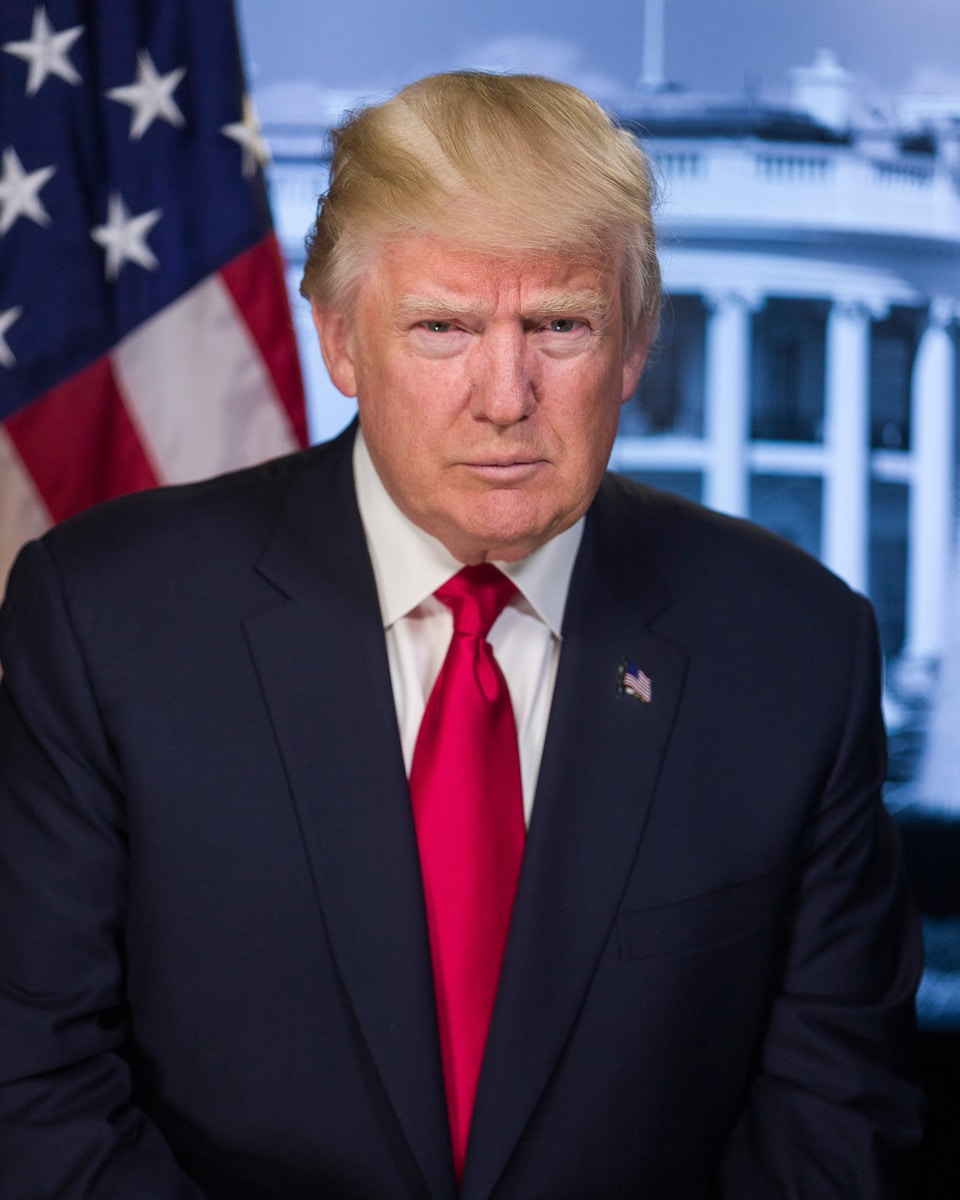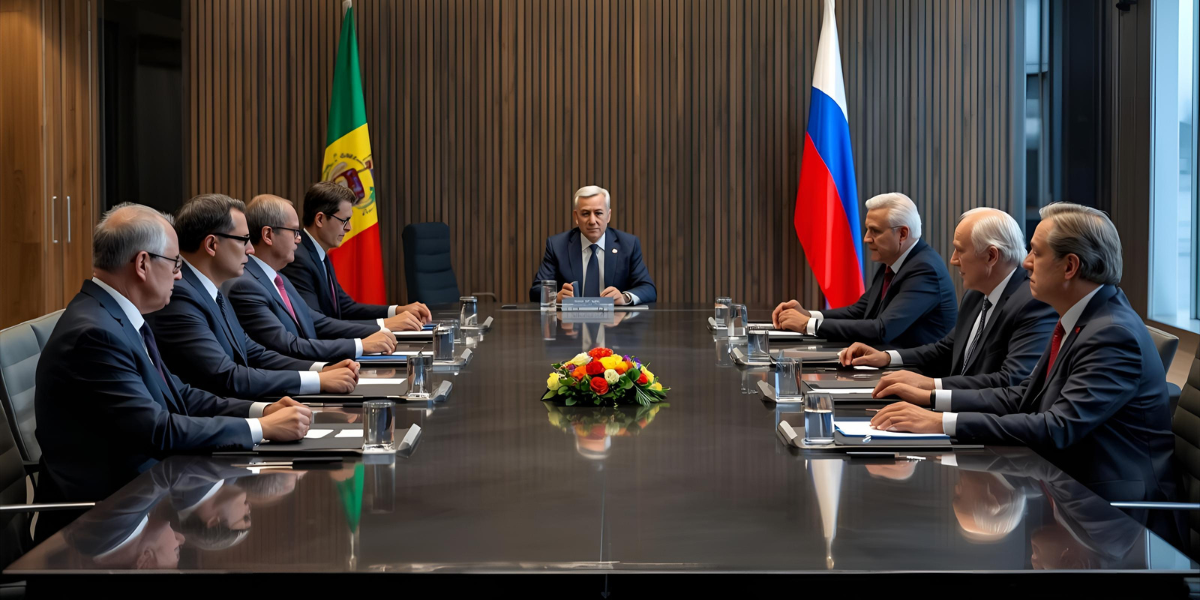
Trump Administration Cuts Lesotho Tariffs from 50% to 15% in Major Trade Shift
Trump Administration Reduces Tariff Rate on Lesotho Imports from 50% to 15%, Offering Crucial Economic Relief
Published by News24
The United States government, led by President Donald Trump, announced a significant reduction in the tariff rate imposed on imports from Lesotho, an economically vulnerable African nation. On Thursday, the administration officially lowered the tariff rate from a steep 50% to a more manageable 15%. This development marks a considerable shift in US trade policy toward Lesotho, which had been under pressure due to earlier tariff increases that threatened to destabilize its fragile economy.
Lesotho, a small, landlocked kingdom surrounded entirely by South Africa, has long struggled with economic challenges linked to its limited resources and dependence on external markets. The sharp tariff hike earlier this year cast uncertainty over the country’s export sector, particularly affecting its key industries such as textiles and apparel, which heavily rely on access to the US market. The tariff adjustment thus offers much-needed reassurance to local businesses and exporters who had feared the impact of punitive trade barriers.
Historical Context: US Tariff Policies Impacting Lesotho
Earlier in 2025, the Trump administration embarked on a broad strategy of escalating tariffs on several countries and product categories in an effort to protect domestic industries and renegotiate trade agreements. Lesotho was among the countries affected by these tariff hikes, with duties imposed at levels as high as 50%. This measure was part of a wider push by the US to recalibrate global trade balances and assert its economic interests more aggressively.
The 50% tariff posed a serious threat to Lesotho’s export-driven economy. Local manufacturers, especially those in the textile and garment sectors, faced the risk of losing their competitive edge in one of their most important markets. The tariff increase risked undermining investments, jeopardizing jobs, and slowing economic growth. Recognizing these risks, both Lesotho’s government and US trade officials engaged in discussions aimed at revising the tariff structure to reflect a more sustainable approach.
Economic Importance of the Tariff Reduction for Lesotho
The reduction of the tariff rate to 15% is a welcomed development for Lesotho’s export industries. The textile and apparel sector forms the backbone of Lesotho’s manufacturing economy, accounting for a significant share of the country’s exports to the United States. By reducing the tariff rate, Lesotho’s goods become more price-competitive, encouraging sustained trade activity and helping preserve jobs that depend on export markets.
This tariff adjustment is expected to have a ripple effect on Lesotho’s broader economy. Beyond the textile industry, other sectors such as agriculture and light manufacturing may also benefit indirectly as overall economic stability improves. Moreover, the reduced trade barrier could help attract further foreign direct investment by signaling a more favorable business environment supported by international trade partners.
Broader Implications for US-Africa Trade Relations
The tariff revision aligns with an evolving US approach to economic engagement with African nations. While the Trump administration has often been associated with protectionist policies, this move highlights a nuanced recognition of the importance of supporting strategic partners like Lesotho. As the US continues to seek stronger ties with African countries, trade policies are increasingly crafted to balance domestic interests with global economic cooperation.
Africa remains a key continent for US foreign policy and economic strategy, given its abundant natural resources, growing consumer markets, and emerging manufacturing capabilities. The US government has pursued various initiatives aimed at promoting trade and investment across the continent, including the African Growth and Opportunity Act (AGOA), which facilitates duty-free access for many African products. Adjustments such as the tariff cut for Lesotho demonstrate how these frameworks evolve in response to economic realities and diplomatic engagement.
Challenges and Future Prospects for Lesotho
Despite this positive tariff adjustment, Lesotho faces ongoing challenges in diversifying its economy and reducing reliance on a limited range of exports. Economic diversification remains a critical goal to enhance resilience against global market fluctuations and trade policy changes. The country’s leaders emphasize the need to develop other sectors, such as mining, agriculture, and tourism, to complement the textile industry.
Additionally, infrastructure development, education, and workforce skills enhancement are crucial areas that require continued investment to support sustainable growth. International trade agreements and tariff policies, while impactful, must be accompanied by domestic reforms to maximize the benefits of improved market access.
Reactions and Diplomatic Responses
The announcement of the tariff reduction has been met with cautious optimism from Lesotho’s government and business community. Officials expressed relief that the US reconsidered its earlier stance, which many feared could have led to economic downturns and job losses. Industry leaders underscored the importance of stable and predictable trade policies in fostering investor confidence and encouraging long-term planning.
On the US side, trade representatives framed the tariff adjustment as a balanced approach that protects American industries while recognizing the unique needs of developing nations. This diplomatic gesture may serve to improve bilateral relations and open the door to further trade discussions aimed at strengthening economic partnerships.
Conclusion
The decision to reduce the tariff rate on Lesotho from 50% to 15% represents a critical shift in US trade policy that brings significant economic relief to the small African nation. It underscores the complex nature of global trade, where balancing domestic protection with international cooperation is essential. For Lesotho, this development offers a valuable opportunity to stabilize and grow its export sectors, but the path forward requires sustained efforts in economic diversification and reform. Ultimately, responsive and fair trade policies like this are vital for fostering inclusive growth and stronger international partnerships.
Related Articles
- Understanding US-Africa Trade Dynamics
- Economic Outlook for Lesotho in 2025
- Overview of Recent US Tariff Policies
For more detailed insights on US-Africa trade relations, visit our US-Africa Trade Relations page.
Learn about Lesotho’s economic developments in our Lesotho Economic Outlook 2025 article.
Explore the latest updates on tariff policies on our US Tariff Policies section.



